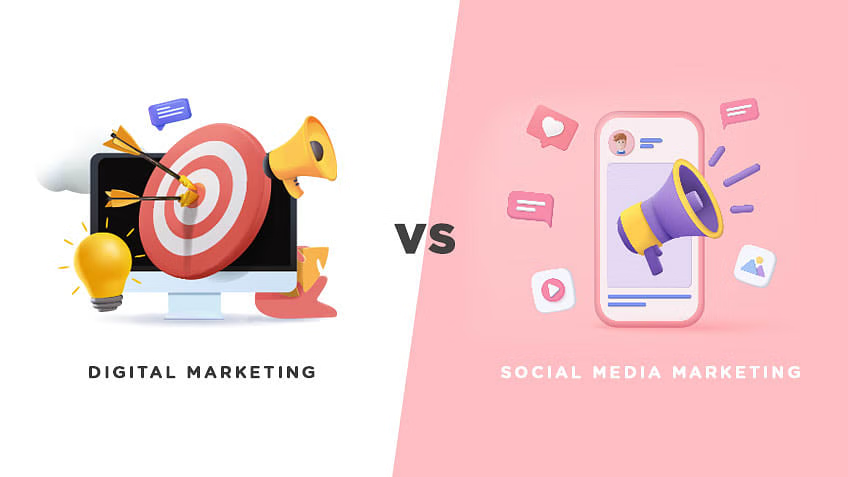Digital Marketing vs. Social Media Marketing

In the realm of online promotion, digital marketing and social media marketing are often used interchangeably, yet they encompass distinct aspects of the marketing spectrum.
Digital Marketing: The Broader Scope
Digital marketing is an umbrella term that refers to all forms of marketing activities that occur online. It encompasses a wide range of tactics and channels, including:
- Search Engine Optimization (SEO): Enhancing website visibility in search engine results.
- Content Marketing: Creating valuable content to attract and engage audiences.
- Email Marketing: Directly reaching out to customers through email campaigns.
- Pay-Per-Click (PPC): Paid advertising to drive traffic to websites.
- Affiliate Marketing: Partnering with others to promote products or services.
Social Media Marketing: A Focused Approach
Social media marketing, on the other hand, is a subset of digital marketing that focuses specifically on leveraging social media platforms to:
- Build Brand Awareness: Creating a recognizable identity on platforms like Facebook, Twitter, and Instagram.
- Engage with Audiences: Interacting with followers through posts, comments, and messages.
- Run Targeted Ad Campaigns: Using platform-specific advertising tools to reach potential customers.
Key Differences
The key differences between digital marketing and social media marketing lie in their scope and strategies:
- Channels: Digital marketing uses a broader range of online channels, while social media marketing is confined to social platforms.
- Objectives: Digital marketing aims to increase overall online presence, whereas social media marketing focuses on building community and engaging with users on social networks.
- Metrics: Digital marketing measures success through website traffic, conversion rates, and ROI. Social media marketing looks at engagement rates, shares, and audience growth.
Conclusion
While social media marketing is a component of digital marketing, it’s not the entirety of it. Digital marketing offers a comprehensive approach to online promotion, while social media marketing zeroes in on the power of social networks. Understanding the distinction between the two is crucial for businesses to effectively allocate resources and craft strategies that resonate with their audience and achieve their marketing goals.